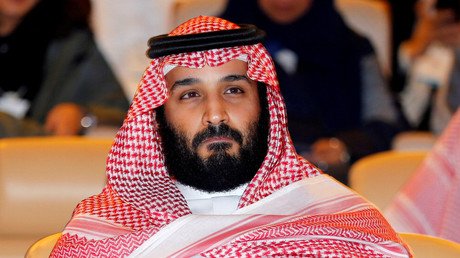Collusion with… Ukraine? NY Times corrects its bombshell ‘Russiagate’ report
It was supposed to be a slam-dunk proof of “collusion” with Russia: President Donald Trump’s former campaign manager Paul Manafort shared polling data with a “Kremlin-linked oligarch,” the NY Times reported. Except he hadn’t.
Documents submitted by Manafort’s lawyers in Special Counsel Robert Mueller’s “Russiagate” probe, unsealed Tuesday, were redacted improperly and showed that Manafort was in communication with Konstantin Kilimnik, a Russian-Ukrainian whom the FBI has “assessed” has “connections” with Russian intelligence based on where he went to college in the 1980s.
That was old news, however, so the Times needed something even more bombastic: citing an anonymous source described as “a person knowledgeable about the situation,” the paper reported that Kilimnik passed the data on to Oleg Deripaska, “a Russian oligarch close to the Kremlin.”
“This is the closest thing we have seen to collusion,” the Times quoted Clint Watts, one of the professional Russiagate alarmists. And then… oops.
We have corrected this article to say that Manafort, via Gates, directed Kilimnik to make sure polling data got to Serhiy Lyovochkin and Rinat Akhmetov, not Deripaska. I am deleting my earlier tweet to limit recirculation. https://t.co/NF0iKWdOpc
— Amy Fiscus (@amyfiscus) January 9, 2019
On Wednesday, the Times corrected the story: Manafort wanted the information sent not to Deripaska, but to “two Ukrainian oligarchs, Serhiy Lyovochkin and Rinat Akhmetov.” In the edited article, the two are described as people who had “financed Russian-aligned Ukrainian political parties that had hired Mr. Manafort as a political consultant.”
The very same anonymous person quoted about Deripaska is also the source for the claim that some of the polling data shared with – well, whoever – was “developed by a private polling firm working for the campaign.”
Also on rt.com In Western media, publishing fake news about Russia is a good career move… with no consequencesBy pure coincidence, news outlets across the West also breathlessly reported on Tuesday about the unsealed indictment against Natalia Veselnitskaya – making sure they mention “Trump Tower” even though the charges against the Russian attorney had nothing to do with that 2016 meeting, but with a case involving notorious tax dodge Bill Browder. It all seemed like a perfect storm of “Russiagate” stories, on the eve of Trump’s address to the nation amid the ongoing government shutdown.
Also on rt.com Still no collusion? Indictment of Russian lawyer whips up ‘Trump Tower’ frenzyEven as the Times was trying to correct its own record, Trump’s critics in the media-political sphere were picking up the original story and running with it. Senator Mark Warner (D-Virginia), ranking member on the Intelligence Committee and one of the driving forces of Russiagate on Capitol Hill, echoed the quote Watts gave to the Times almost verbatim on CNN, declaring that “This appears as the closest we've seen yet to real, live, actual collusion.”
Mark Warner on Manafort revelation: "This appears as the closest we've seen yet to real, live, actual collusion ... Trump's campaign chairman shared confidential Trump campaign data with a Russian intelligence operative ... How is that not evidence of an effort to collaborate?" pic.twitter.com/yQNBKlMr1c
— Manu Raju (@mkraju) January 9, 2019
That is actually a shocking admission by Warner, since he’s claimed for years that the so-called Russian collusion is a proven fact, rather than a figment of conspiracy theorists’ rich imagination, driven by projection and profits to be made from “securing our democracy” in the wake of the 2016 presidential election.
If a semi-retracted New York Times story, relying on an unreliable anonymous source and mistaking Ukrainians for Russians, is the “closest” thing to proof of collusion, perhaps there is no ‘there’ there after all.
Will this rather obviously significant correction change any of the claims made about this story yesterday? To pose the question is to answer it: https://t.co/fQjQzr32J1pic.twitter.com/YHFBD0oj4U
— Glenn Greenwald (@ggreenwald) January 9, 2019
This is a big correction. And a bit late now the disinformation is all over social media. So, basically Manafort’s US polling data was given to Ukrainians. Not a Russian. But ‘Russiagate’ etc. https://t.co/xwzlaZnzYe
— Bryan MacDonald (@27khv) January 9, 2019
Think your friends would be interested? Share this story!














